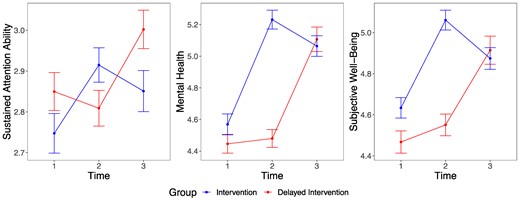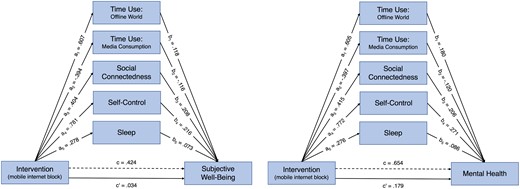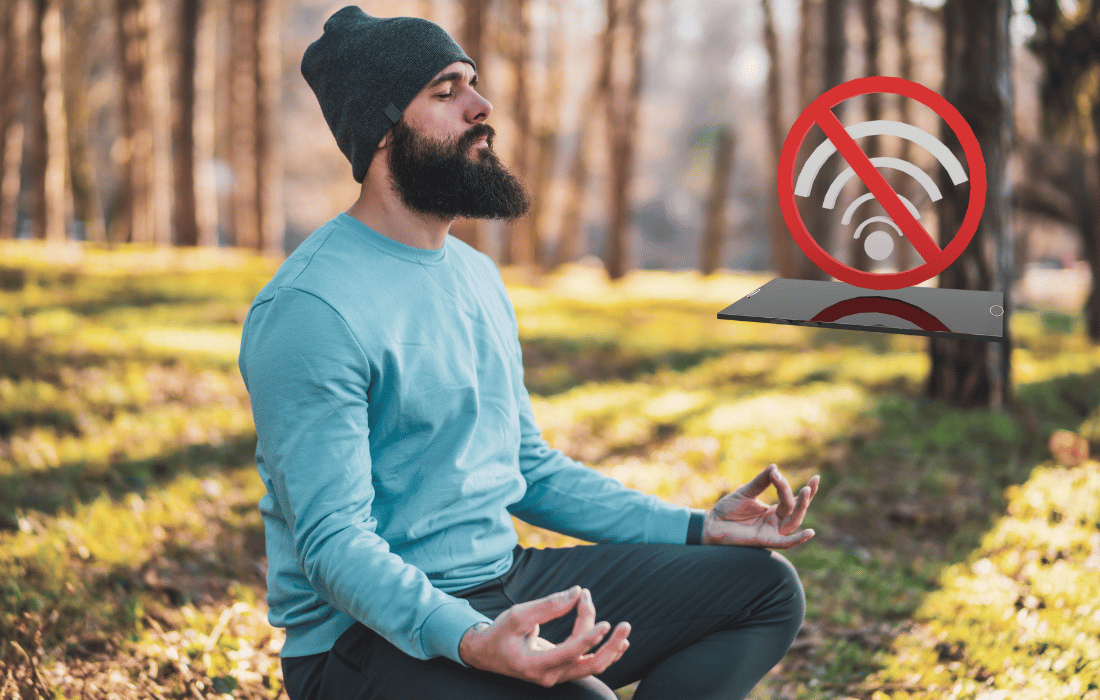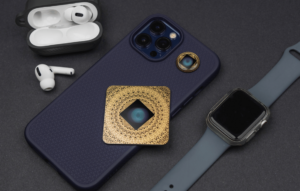Smartphones, for all their brilliance, might be quietly undermining our minds. A February 2025 study published by PNAS Nexus delivers one of the most conclusive pieces of evidence yet: blocking mobile internet access on smartphones improves sustained attention, boosts mental health, and enhances subjective well-being. This wasn’t just a light observation in a lab setting. It was a month-long randomized controlled trial with hundreds of participants, and the results are hard to ignore.
The findings speak to a widespread unease. Most of us suspect our phones aren’t exactly good for us—yet we can’t stop checking them. This study helps confirm what many have intuitively felt but never had the hard science to back up: that our constant access to the internet via smartphones might be the very thing eroding our capacity to focus, stay present, and feel well.
The Study That Changed the Game
Researchers blocked all mobile internet access on participants’ smartphones for two weeks using an app called Freedom. Importantly, texts and phone calls still worked, and participants could still use the internet on desktops or tablets. The goal wasn’t to live off the grid—just to sever the constant connection.
Participants were split into two groups: the Intervention group went offline first, while the Delayed Intervention group served as a control before switching roles halfway through. Researchers tracked real behavioral and psychological outcomes at three points: before the intervention (T1), after two weeks (T2), and again two weeks later (T3).
Key Findings
Mental health improved more than it typically does with antidepressants (dz = 0.56).
Sustained attention improved by the equivalent of rolling back 10 years of age-related decline.
Subjective well-being (life satisfaction, positive mood) increased significantly (dz = 0.45).
91% of participants improved on at least one of these outcomes.
And these weren’t just fleeting effects. In many cases, the improvements persisted even after the internet block was lifted.

Why Did It Work?
It turns out, the magic wasn’t just in what was taken away—but what was allowed to flourish in its place. When people unplugged from the mobile internet, they didn’t just lose access to apps—they gained back time, intention, and presence.?
1. Time Reclaimed
When mobile internet was blocked, participants spent less time consuming media and more time engaging in what researchers called the “offline world”—socializing in person, exercising, being outdoors, and reading. These are all activities with well-documented links to enhanced mental health and cognition.
2. Stronger Self-Control
Cutting off easy access to distraction actually improved participants’ feelings of self-control. When you’re not constantly resisting the urge to check notifications, you free up cognitive energy to be more intentional.
3. Better Sleep and Deeper Connection
Participants slept more and reported feeling more socially connected during the intervention. Both sleep and interpersonal connection are deeply tied to emotional resilience and mental clarity.

Reclaiming Attention in a Digital World
We live in an era of perpetual notification. The simple act of reclaiming our focus often feels like swimming against a current of distraction, but this study shows we have more control than we think. Disconnecting—even slightly—can reset the mind in powerful ways.
1. Smartphones Aren’t the Enemy—But Constant Access Might Be
This isn’t an anti-tech manifesto. Smartphones are useful, even necessary, for many aspects of modern life. But this study isolates mobile internet access as a unique driver of distraction and cognitive drain.
It’s not the phone. It’s the flood. Social media, news updates, endless content, emails, and dopamine triggers are always just a tap away. By cutting the cord—even temporarily—participants were able to breathe again.
2. Comparisons That Hit Home
The study’s results rival or even surpass established mental health interventions:
The increase in sustained attention was on par with a decade of regained cognitive function.
Mental health improvement exceeded that of antidepressant use in meta-analyses.
Even short experience sampling via SMS showed consistent mood improvement during the block.
For many, this suggests we’re overestimating the necessity of constant access and underestimating its psychological toll.
Who Benefits Most?
Participants who stood to gain the most from blocking mobile internet access often shared a few key traits that amplified the study’s positive effects:
High baseline FoMO (Fear of Missing Out): These individuals saw the greatest improvements in mental health and well-being, likely due to fewer social comparison triggers.
ADHD symptoms: Those with attention deficits experienced sharper increases in attentional awareness and focus.
Self-identified smartphone overuse: Participants who already felt overwhelmed by their phone habits benefited most from the digital break.
Willingness to reduce screen time: Motivation and capability to cut back on usage played a role in how much benefit was gained.
This reinforces the idea that those who feel most trapped by their phones may also be the ones most primed to reclaim peace, focus, and balance when they disconnect.
What This Means for Athletes, Coaches, and Everyday Performers
In high-performance environments like sports, attention is everything. Whether you’re a fighter trying to time a perfect counter, a motocross racer navigating split-second terrain changes, or a coach trying to keep your athletes locked in, sustained attention is non-negotiable.
Imagine improving focus without stimulants, without extra hours of sleep, and without any new training protocols—just by reducing your phone’s access to the internet.
And it gets better: this attention boost doesn’t require perfection. Even those who didn’t comply fully still saw benefits.
Implementation Ideas for Blocking Mobile Internet to Improve Focus and Mental Health
Before diving into the strategies, it’s important to recognize that successful implementation isn’t about perfection. It’s about creating space—space to think, breathe, reflect, and reconnect with the parts of life that aren’t filtered through an app or notification. These ideas are meant to be realistic, flexible, and adaptable to your lifestyle.
The “Digital Dumbphone” Protocol
Try this for two weeks:
Use the Freedom app or another blocker to disable mobile internet from your smartphone.
Keep calls and texts enabled.
Allow yourself desktop or tablet internet access when necessary.
Set a consistent sleep schedule and spend your extra time on three offline activities: movement, nature, and face-to-face interaction.
For Coaches and Teams
During training camp: Try a “No Mobile Internet” rule for athletes outside of scheduled breaks.
Before games: Create a 24-hour digital fast to help with mental clarity and focus.
Year-round: Encourage athletes to replace doom-scrolling with journaling, breathwork, or sleep hygiene practices.
Supporting Focus and Well-Being with Aires Tech

While blocking mobile internet is a powerful intervention, many athletes and health-conscious individuals are also looking at the broader picture of how modern tech affects the nervous system. That includes not just psychological distractions, but physiological stressors like electromagnetic field (EMF) radiation.
This is where Aires Tech comes in. Their scientifically validated EMF protection devices are designed to harmonize the frequencies emitted by wireless technology, reducing the biological chaos that EMFs can create in the body and brain. For athletes, students, professionals, and parents alike, Aires Tech devices offer an added layer of support to help:
Improve focus and reduce cognitive fatigue
Enhance recovery and sleep quality
Support long-term brain health and hormonal balance
Whether you’re experimenting with digital minimalism or simply want to mitigate the invisible stressors in your environment, Aires Tech offers an empowering solution that works in tandem with your lifestyle upgrades.
Final Thoughts: Technology and Self-Governance
The smartphone isn’t going anywhere. But how we use it—or let it use us—is still a choice. This study offers a rare, statistically solid roadmap for reclaiming that choice.
Blocking mobile internet might feel extreme. But so is losing your focus, mental resilience, or sense of connection.
You don’t need to delete your phone. You just need to take back the steering wheel.











